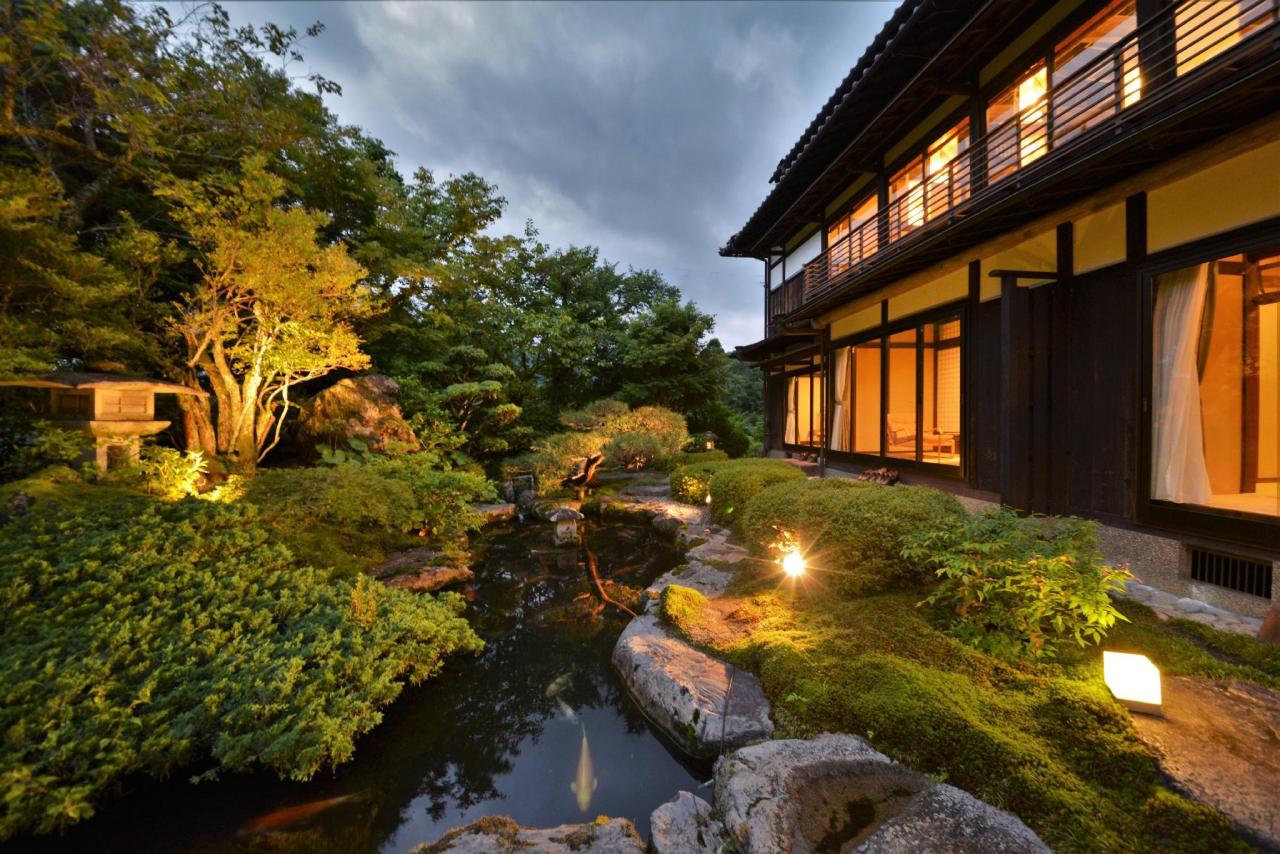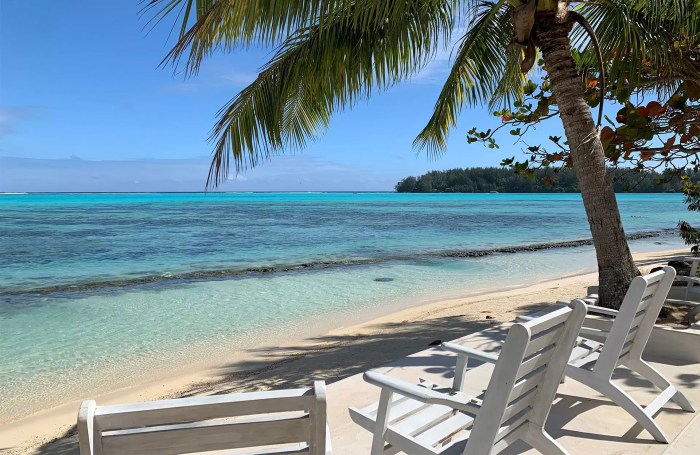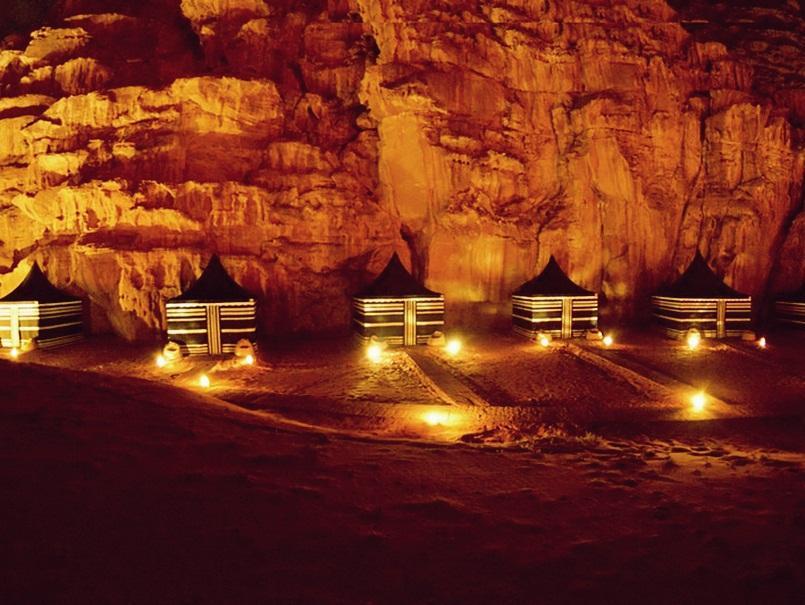Hot spring ryokan kyoto – Escape into the serene embrace of Kyoto’s hot spring ryokans, where traditional Japanese hospitality blends seamlessly with the restorative powers of natural hot springs. This guide delves into the unique experiences and benefits of these enchanting retreats, offering an immersive journey into Japanese culture and well-being.
From the soothing waters of onsen to the tranquil ambiance of ryokan accommodations, prepare to unwind and rejuvenate in the heart of Kyoto’s natural beauty.
Hot Spring Ryokan Kyoto
Overview
A ryokan is a traditional Japanese inn that typically offers accommodations, meals, and access to hot springs. Ryokans have been an integral part of Japanese culture for centuries, providing travelers with a place to rest and relax while enjoying the country’s natural beauty.Kyoto,
the former imperial capital of Japan, is home to numerous hot spring ryokans. These ryokans offer a unique opportunity to experience the traditional Japanese way of life while enjoying the benefits of natural hot springs.
Unique Characteristics and Amenities
Hot spring ryokans in Kyoto offer a range of unique characteristics and amenities that make them a popular choice for travelers. These include:
Traditional Japanese architecture
Many hot spring ryokans in Kyoto are built in a traditional Japanese style, with tatami mats, shoji screens, and sliding doors. This creates a serene and relaxing atmosphere that is perfect for unwinding.
Natural hot springs
The hot springs in Kyoto are renowned for their therapeutic properties. The water is rich in minerals that can help to soothe sore muscles, improve circulation, and promote relaxation.
Kaiseki cuisine
Kaiseki is a traditional Japanese multi-course meal that is often served at hot spring ryokans. Kaiseki meals are typically made with fresh, seasonal ingredients and are beautifully presented.
Exceptional service
Hot spring ryokans in Kyoto are known for their exceptional service. The staff is attentive and helpful, and they go out of their way to make sure that guests have a comfortable and enjoyable stay.
Benefits of Staying in a Hot Spring Ryokan Kyoto
Immersing yourself in the natural hot springs and experiencing the traditional Japanese ambiance of a ryokan in Kyoto offers a multitude of therapeutic, relaxation, and cultural benefits.
Therapeutic Benefits
Soaking in natural hot springs, known as onsen, has been a cherished Japanese tradition for centuries due to its therapeutic properties. The mineral-rich waters of these hot springs provide numerous health benefits, including:
- Improved circulation and reduced muscle tension
- Relief from chronic pain, such as arthritis and rheumatism
- Enhanced skin health and detoxification
- Boosted immunity and reduced stress levels
Relaxation and Rejuvenation
A ryokan stay is designed to promote relaxation and rejuvenation. The tranquil surroundings, soothing onsen, and attentive service create an environment where guests can unwind and recharge. The ryokan’s traditional architecture, often featuring tatami mats, sliding doors, and serene gardens, contributes to a sense of tranquility and immersion in nature.
Cultural Immersion and Authentic Japanese Experience
Staying in a hot spring ryokan Kyoto offers a unique opportunity for cultural immersion. Guests can experience traditional Japanese customs, such as wearing a yukata robe and dining on kaiseki cuisine. The ryokan’s staff is often knowledgeable about local history and traditions, providing insights into Japanese culture and customs.
By embracing the ryokan experience, guests can gain a deeper understanding and appreciation for Japan’s rich heritage.
Popular Hot Spring Ryokans in Kyoto
Kyoto is renowned for its abundance of hot spring ryokans, each offering a unique blend of traditional Japanese hospitality and rejuvenating onsen experiences. Here are some of the most esteemed hot spring ryokans in Kyoto, renowned for their exceptional amenities, serene ambiance, and unforgettable dining experiences:
| Name | Location | Amenities | Price Range |
|---|---|---|---|
| Kurama Onsen | Kurama, Kyoto | Outdoor onsen, indoor onsen, massage services, tea ceremony room | $200-$300 per night |
| Arashiyama Onsen | Arashiyama, Kyoto | Outdoor onsen with panoramic views, indoor onsen, sauna, fitness center | $300-$400 per night |
| Kibune Onsen | Kibune, Kyoto | Outdoor onsen nestled amidst nature, indoor onsen, traditional Japanese cuisine | $400-$500 per night |
| Takao Onsen | Takao, Kyoto | Outdoor onsen surrounded by lush greenery, indoor onsen, meditation room | $250-$350 per night |
Booking and Planning a Hot Spring Ryokan Stay

Booking a hot spring ryokan stay in Kyoto involves several key steps. The first step is to choose a ryokan that meets your needs and preferences. Factors to consider when choosing a ryokan include its location, amenities, and budget. Once you have chosen a ryokan, you can book your stay online or by phone.
When planning your hot spring ryokan stay, it is important to keep in mind the following tips:
Accommodation
- Book your stay in advance, especially if you are traveling during peak season.
- Check the ryokan’s cancellation policy before booking.
- Make sure to pack appropriate clothing and toiletries for your stay.
- Be respectful of the ryokan’s rules and regulations.
Activities
- Plan your activities in advance so that you can make the most of your stay.
- Take advantage of the ryokan’s amenities, such as the hot springs, massage services, and dining options.
- Explore the surrounding area and visit local attractions.
Etiquette and Customs in Hot Spring Ryokans
When staying in a hot spring ryokan, it is essential to observe proper etiquette and customs to ensure a respectful and enjoyable experience for all guests.
In hot springs and public bathing areas, it is customary to:
- Remove all clothing and rinse thoroughly before entering the hot spring.
- Avoid talking loudly or splashing water.
- Respect the privacy of others by not staring or taking photographs.
- Exit the hot spring promptly after use.
Within the ryokan, it is important to:
- Remove shoes upon entering and wear the provided slippers.
- Be mindful of noise levels and avoid disturbing other guests.
- Respect the privacy of other guests and refrain from entering their rooms.
- Follow the instructions of the staff and adhere to any posted rules.
Traditional Japanese Dining Experience
Ryokans often offer traditional Japanese dining experiences, known as kaiseki ryori. These multi-course meals are meticulously prepared and presented, showcasing the season’s freshest ingredients and culinary artistry.
During a kaiseki ryori meal, it is customary to:
- Arrive on time for your reservation.
- Dress appropriately, typically in formal attire or a kimono.
- Sit in the designated seat and wait for the meal to be served.
- Use chopsticks correctly and avoid making loud noises while eating.
- Enjoy the flavors and presentation of each dish.
Day Trips to Hot Spring Ryokans: Hot Spring Ryokan Kyoto
Day trips to hot spring ryokans from Kyoto city offer a convenient way to experience the rejuvenating benefits of onsen without the need for an overnight stay. While day trips provide flexibility and affordability, they come with certain limitations compared to overnight stays.
Advantages of Day Trips
- Flexibility:Day trips allow visitors to plan their itinerary around their schedule, fitting a hot spring experience into a day of sightseeing or other activities.
- Affordability:Day-use fees are typically lower than overnight accommodation, making it a more budget-friendly option.
- Variety:Day trips enable visitors to explore multiple hot spring ryokans within a single day, allowing them to compare different facilities and amenities.
Disadvantages of Day Trips
- Limited Time:Day trips provide only a limited amount of time to enjoy the hot spring facilities, typically ranging from a few hours to half a day.
- Crowds:Day-use ryokans tend to be more crowded, especially during peak tourist seasons.
- No Overnight Experience:Day trips miss out on the unique overnight experience of a ryokan, including traditional dining, comfortable accommodations, and access to the onsen at all hours.
Recommended Ryokans for Day Use
Several hot spring ryokans in Kyoto offer day-use facilities. Here are a few recommended options:
- Kurama Onsen:Located on Mount Kurama, Kurama Onsen offers scenic mountain views and a variety of indoor and outdoor baths.
- Kibune Onsen:Nestled in the Kibune Valley, Kibune Onsen provides a tranquil setting with open-air baths surrounded by nature.
- Sagano Onsen:Situated in the Arashiyama district, Sagano Onsen features a large public bath with natural spring water.
Unique Experiences at Hot Spring Ryokans
Immerse yourself in the tranquil ambiance of Kyoto’s hot spring ryokans and partake in unique experiences that blend traditional Japanese culture with relaxation. These experiences provide a profound connection to the country’s rich heritage and enhance the overall well-being of guests.
Traditional Japanese Tea Ceremony
Engage in the ancient ritual of the Japanese tea ceremony, known as chanoyu, at select hot spring ryokans. This serene experience involves the meticulous preparation and serving of matcha, a finely ground green tea, in a tranquil teahouse. Guests learn about the history, etiquette, and symbolism associated with this cultural practice, fostering a deep appreciation for Japanese tradition and mindfulness.
Calligraphy Workshops
Unleash your creativity and learn the art of Japanese calligraphy, known as shodo. Guided by skilled instructors, guests are introduced to the basic techniques and principles of this expressive art form. Using traditional brushes and ink, they create their own unique characters, gaining insights into the beauty and complexity of the Japanese written language.
Guided Nature Walks
Embrace the natural beauty surrounding hot spring ryokans by embarking on guided nature walks. Led by knowledgeable guides, guests explore serene trails, discover hidden waterfalls, and learn about the local flora and fauna. These walks promote physical and mental well-being, offering a refreshing contrast to the relaxing hot spring soaks.
Hot Spring Ryokans for Special Occasions
Hot spring ryokans are ideal destinations for special occasions such as anniversaries, honeymoons, and family gatherings. They offer a serene and romantic ambiance, coupled with rejuvenating hot spring baths and exquisite dining experiences.
Immerse yourself in the tranquil ambiance of a hot spring ryokan in Kyoto, where rejuvenating waters soothe your body and mind. While planning your itinerary, consider exploring the captivating Caribbean island of Guadeloupe. From snorkeling in crystal-clear waters to hiking through lush rainforests, things to do in guadeloupe caribbean offer a vibrant blend of adventure and relaxation.
Upon your return to Kyoto, continue your journey of tranquility at a hot spring ryokan, allowing the healing waters to restore your well-being.
When selecting a ryokan for a special occasion, consider your specific needs and preferences. For romantic getaways, look for ryokans with private onsen baths, candlelit dinners, and couples’ spa treatments. For family gatherings, choose ryokans with spacious guest rooms, family-friendly amenities like play areas and babysitting services, and dining options that cater to children’s tastes.
Romantic Ryokans
- Gion Hatanaka: Located in the heart of Kyoto’s Gion district, Gion Hatanaka offers luxurious accommodations, a private onsen bath in each room, and a Michelin-starred restaurant serving traditional Kaiseki cuisine.
- Hanaikada: Nestled in the picturesque Arashiyama district, Hanaikada features private open-air onsen baths overlooking the Katsura River, a romantic ambiance, and a restaurant serving seasonal Japanese dishes.
Family-Friendly Ryokans, Hot spring ryokan kyoto
- Suiran, a Luxury Collection Hotel, Kyoto: This modern ryokan offers spacious guest rooms with tatami flooring and private onsen baths, a kids’ club with supervised activities, and a restaurant with a children’s menu.
- Kyokoyado Shigetsu: Located in the tranquil Sagano district, Kyokoyado Shigetsu provides family-friendly guest rooms with connecting doors, a children’s play area, and a restaurant serving a buffet breakfast with options for children.
Health and Safety Considerations
Hot spring bathing offers numerous health benefits, including relaxation, improved circulation, and pain relief. However, certain medical conditions may require precautions.
Health Benefits
- Improved circulation: The warm water of hot springs increases blood flow, reducing blood pressure and improving overall cardiovascular health.
- Relaxation: Hot springs promote relaxation by reducing muscle tension and stress levels.
- Pain relief: The minerals in hot spring water can help reduce pain and stiffness associated with arthritis, muscle pain, and joint problems.
- Improved sleep: Bathing in hot springs before bed can promote restful sleep by lowering body temperature and reducing stress.
- Skin health: The minerals in hot spring water can help improve skin conditions such as eczema and psoriasis.
Potential Risks
While hot spring bathing is generally safe, certain precautions should be taken:
- Overheating: Prolonged exposure to hot water can lead to overheating, dizziness, and nausea. It’s important to take breaks and hydrate regularly.
- Dehydration: Hot spring bathing can cause dehydration, so it’s essential to drink plenty of water before, during, and after bathing.
- Skin irritation: Some individuals may experience skin irritation from the minerals in hot spring water. It’s recommended to shower after bathing to remove any residual minerals.
Precautions for Individuals with Medical Conditions
Individuals with certain medical conditions should consult their doctor before bathing in hot springs:
- Heart disease: Individuals with heart disease should limit their time in hot springs to avoid overexertion.
- High blood pressure: Individuals with high blood pressure should take precautions to avoid dizziness and fainting.
- Diabetes: Individuals with diabetes should monitor their blood sugar levels before and after bathing.
- Pregnancy: Pregnant women should consult their doctor before bathing in hot springs, as high water temperatures can be harmful to the fetus.
Safety Measures in Hot Spring Ryokans
Hot spring ryokans implement various safety measures to ensure guest well-being:
- Temperature monitoring: Ryokans regularly monitor the temperature of their hot springs to ensure they are within a safe range.
- Supervision: Staff members are often present to supervise bathers and assist in case of emergencies.
- Emergency response: Ryokans have emergency response plans in place to handle any incidents that may occur.
By following these precautions and safety measures, individuals can enjoy the health benefits of hot spring bathing while minimizing potential risks.
Alternative Hot Spring Destinations near Kyoto
While Kyoto boasts an abundance of hot spring ryokans, there are also several notable destinations located within a reasonable distance from the city. These alternative hot spring spots offer unique experiences and attractions, providing travelers with a diverse range of options to choose from.
Arima Onsen
Arima Onsen, located in the city of Kobe, is renowned for its two distinct types of hot springs: Kinsen (“gold spring”) and Ginsen (“silver spring”). Kinsen waters are known for their reddish-brown color and high iron content, while Ginsen waters are clear and rich in sodium chloride.
Arima Onsen is easily accessible from Kyoto by train, making it a convenient day trip destination.
Kinosaki Onsen
Kinosaki Onsen, situated on the Sea of Japan coast in Hyogo Prefecture, is a charming hot spring town with seven public bathhouses. Each bathhouse offers unique architectural styles and onsen experiences. Visitors can enjoy strolling through the town’s willow-lined streets while wearing traditional yukata robes and geta sandals.
Awazu Onsen
Awazu Onsen, located in the city of Komatsu, Ishikawa Prefecture, is famous for its high-quality sodium chloride springs. The onsen waters are said to have therapeutic benefits for various ailments, including skin conditions and joint pain. Awazu Onsen is known for its luxurious ryokans and scenic surroundings.
Yunoyama Onsen
Yunoyama Onsen, situated in the town of Yunoyama, Okayama Prefecture, is a secluded hot spring destination surrounded by lush forests. The onsen waters are known for their high concentration of carbon dioxide, which is believed to have invigorating effects on the body.
Yunoyama Onsen is a popular spot for hiking and nature enthusiasts.
| Name | Location | Amenities | Distance from Kyoto |
|---|---|---|---|
| Arima Onsen | Kobe | Two distinct hot spring types, traditional ryokans | 30 minutes by train |
| Kinosaki Onsen | Hyogo Prefecture | Seven public bathhouses, charming town atmosphere | 2 hours by train |
| Awazu Onsen | Komatsu, Ishikawa Prefecture | High-quality sodium chloride springs, luxurious ryokans | 2 hours by train |
| Yunoyama Onsen | Yunoyama, Okayama Prefecture | Carbon dioxide-rich waters, natural surroundings | 2.5 hours by train |
Last Recap
Whether seeking a romantic getaway, a family retreat, or a solitary escape, hot spring ryokans in Kyoto offer a transformative experience. Immerse yourself in the healing embrace of natural hot springs, embrace the cultural traditions of Japan, and create memories that will last a lifetime.
Frequently Asked Questions
What is the significance of a ryokan in Japanese culture?
Ryokans are traditional Japanese inns that embody the essence of omotenashi, the art of selfless hospitality. They offer a glimpse into Japan’s rich cultural heritage and provide an authentic experience of Japanese customs and traditions.
What are the unique characteristics of hot spring ryokans in Kyoto?
Kyoto’s hot spring ryokans are renowned for their exquisite architecture, serene gardens, and access to natural hot springs. They offer a wide range of amenities, including private onsen, traditional dining experiences, and rejuvenating spa treatments.
How can I choose the right hot spring ryokan for my needs?
Consider factors such as location, amenities, budget, and the type of experience you seek. Research different ryokans and read reviews to find one that aligns with your preferences.


